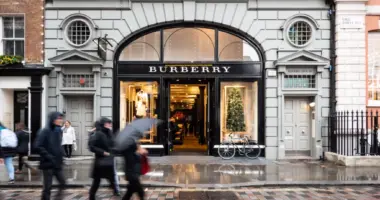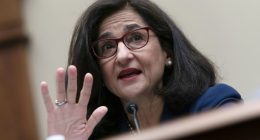On Monday — International Women’s Day — Burger King announced a new program designed to highlight gender disparity in the restaurant industry: A scholarship program for female employees.
“… Only 20% of chefs are women,” Burger King U.K. tweeted. “We’re on a mission to change the gender ratio in the restaurant industry by empowering female employees with the opportunity to pursue a culinary career.”
Sounds good: Recognize a problem, seek to address that problem.
Except for the fact Burger King led the announcement with this tweet.
As you might expect, the backlash was quick and heavy. Some felt the tweet was, at best, tone deaf. Others accused the brand of using a sexist expression as click bait. And others, well, you can guess what others said.
Later in the day, Burger King deleted the original tweet, referencing “abusive comments” in its thread.
And issued an apology.
As apologies go, not bad:
- “We hear you.”
- “We got our initial tweet wrong and we’re sorry.”
- “We will do better next time.”
Except for the unstated “but” in the apology: “Our aim was to draw attention to the fact that only 20 percent of professional chefs in UK kitchens are women and to help change that by awarding culinary scholarships.”
As my grandfather used to say, “Everything after ‘but’ is BS.”
While Burger King’s intent was admirable, still: When you apologize, say you’re sorry. Say why you’re sorry. Take all the blame. Pledge — if only to yourself — to do better.
No less. No more.
And then there’s this. Identity appeals invariably spark backlash. As this 2019 study shows:
Ineffectiveness of identity appeals is driven by categorization threat — feeling unwillingly reduced to a single identity — which is induced when a) the identity deployed is that of a typically marginalized group and b) the appeal evokes a stereotype about that identity.
Ironically, identity appeals often drive identity-holders away from options they would have preferred in the absence of that appeal.
Do women belong in the kitchen? Yes.
So do men.
So does everyone.
Invoking a stereotype, however harmlessly or humorously intended, at least partly alienated the audience and individuals Burger King hoped to attract.
Which is a shame, since the program deserves praise. The Burger King Foundation H.E.R. (Helping Equalize Restaurants) Scholarship will grant $25,000 apiece to two current female employees, and there are plans to establish similar programs in other countries.
According to a Burger King spokesperson, “Our tweet in the U.K. today was designed to draw attention to the fact that only a small percentage of chefs and head chefs are women. It was our mistake to not include the full explanation in our initial tweet and have adjusted our activity moving forward because we’re sure that when people read the entirety of our commitment, they will share our belief in this important opportunity.”
Maybe so — but then again, even a tweet gets only one chance to make a first impression.
And so does an apology.
This article is from Inc.com









